#pat bb
Photo
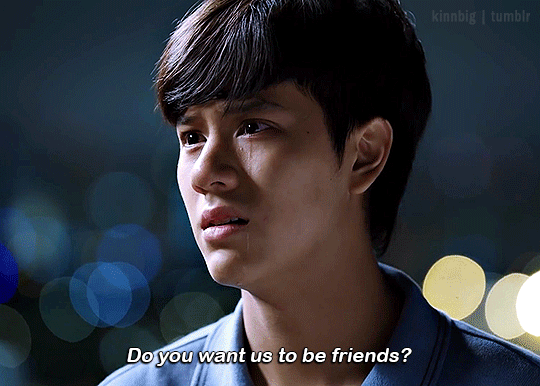
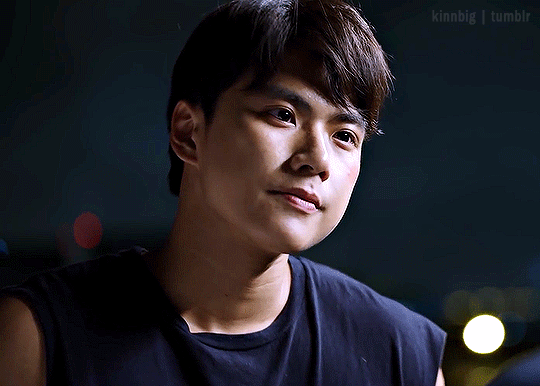
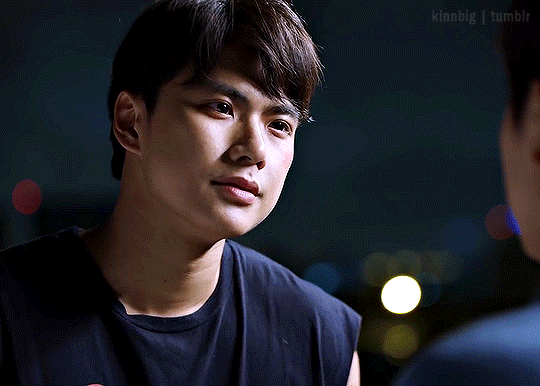
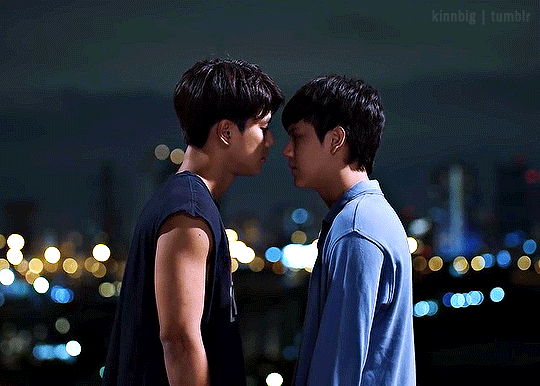


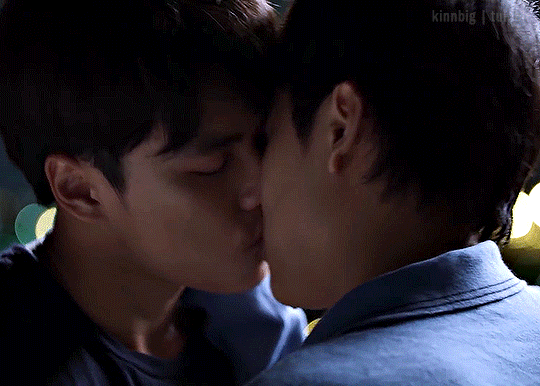
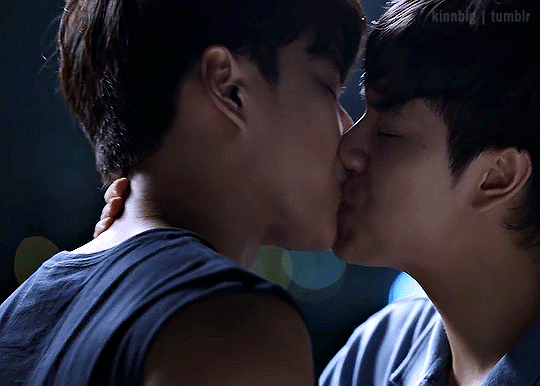
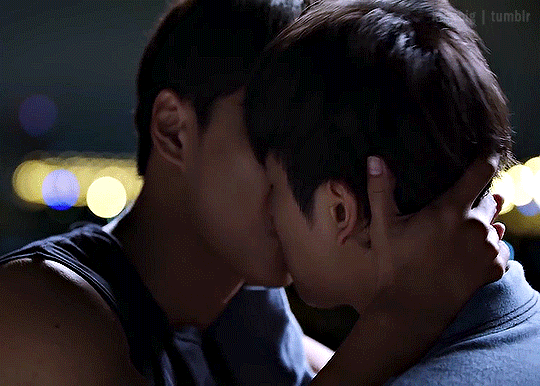
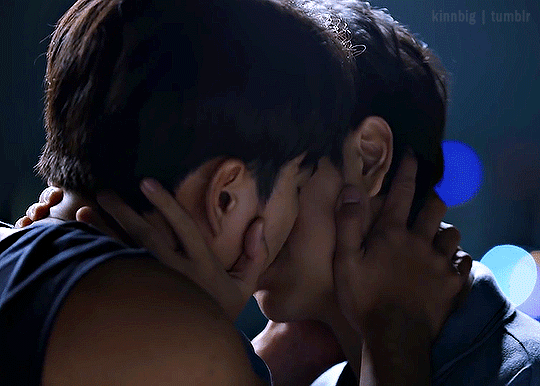
happy 1st anniversary to the best first kiss in television history
#when i say this was a cultural reset#bad buddy#bad buddy the series#patpran#pranpat#ohm pawat#nanon korapat#badbuddyedit#lgbtedit#bad buddy series#ohmnanon#pat bb#pran bb#darcey.gif#darcey.txt#badbuddy.gif#bl.gif#darcey.main
3K notes
·
View notes
Text
No thoughts only "do you want us to be friends?" followed by the world's softest, most reverent "no."
#we dont need to talk about ohm giving that gorgeous performance while wearing a ''baseball m⚾m'' shirt thats not the point rn 💀#bad buddy#patpran#pranpat#pran parakul#pat jindapat#pat bb#pran bb#I will be going insane about this for the next several months#i have found my comfort media and i intend to make it all of your problem
632 notes
·
View notes
Text



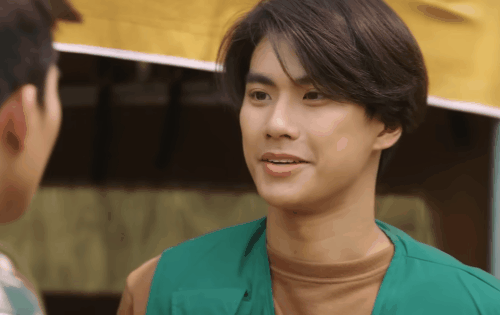
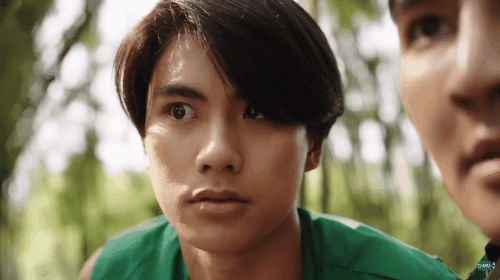
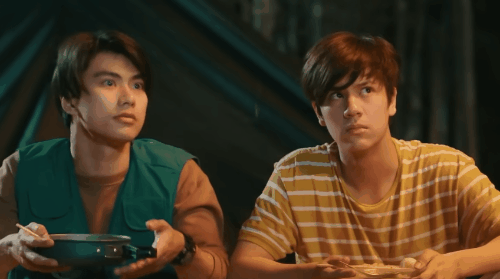

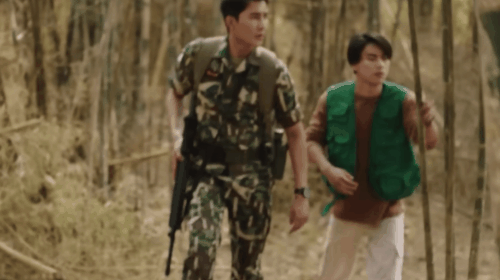

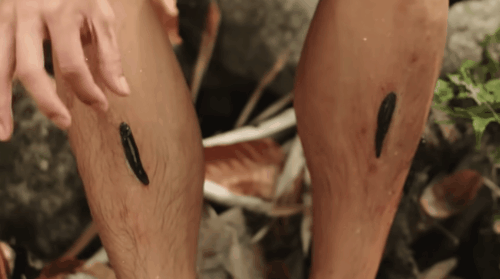
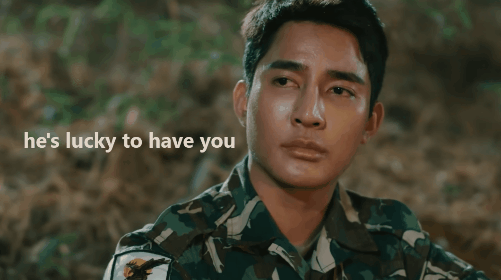
#Ok#OBVIOUSLY this is just a joke#usually I would not accept Pat slander in this house#however you gotta admit... from Phupha's perspective at that moment...#well.#anyway enjoy#my poor quality gifs#and judgy phupha#bad buddy#atots#a tale of a thousand stars#our skyy: bb#our skyy 2#our skyy x a tale of a thousand stars#our skyy x bad buddy#our skyy x 1000 stars#our skyy x bad buddy x 1000 stars#patpran#chief phupha#bad buddy crack#our skyy crack
397 notes
·
View notes
Text
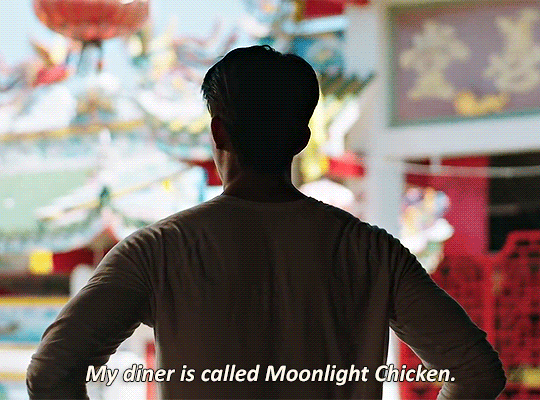


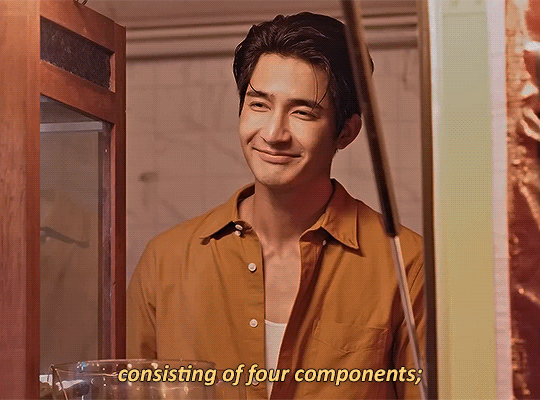



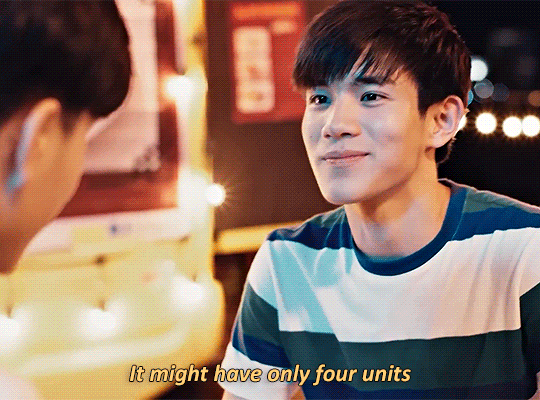
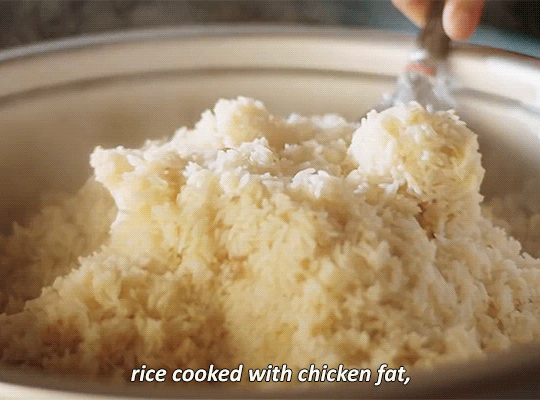
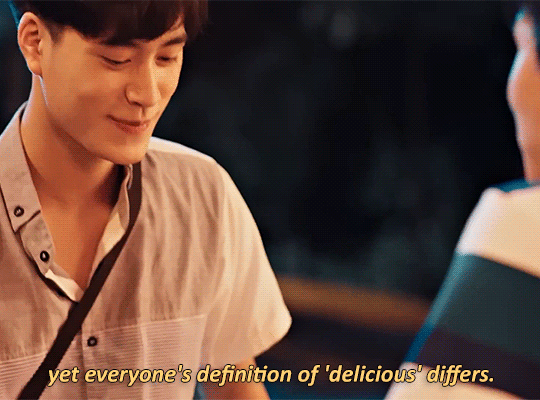


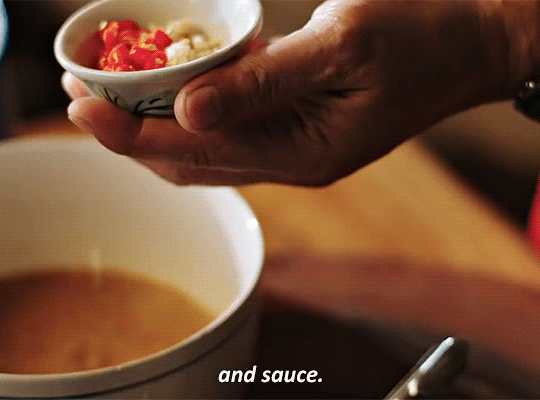



Moonlight Chicken (2023)
Original Trailer // Episode 12
#moonlight chicken#earth pirapat#mix sahaphap#thaidramaedit#*mygifs#*mine#asianlgbtqdramas#moonlightchickenedit#mlc repetitions#in honor of new trailers tomorrow...#i love thinking about what are some of the core ideas of a show since its inception#like pat playing the xylophone in bbs#i like that the opening words of the trailer became the closing words of the show
166 notes
·
View notes
Text
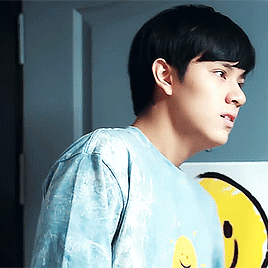
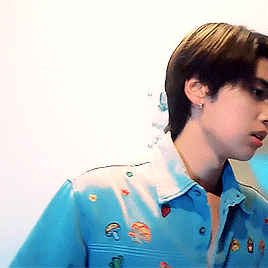
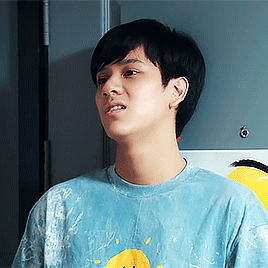

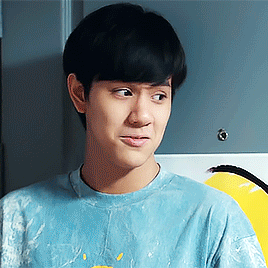
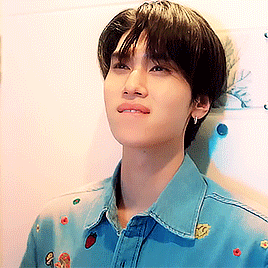
Bad Buddy (2021) | Hidden Agenda (2023)
when your gay crush is right outside your door and something lgbt just happened between the two of you
#hidden agenda#bad buddy#bbs#jokezo#patpran#pran parakul#ha zo#ha ep7#bbs ep4#patpranification#the patpranification of hidden agenda#meine grafiken#bbsgifmine#hagifmine#adrm#oh woooow that's a lot of organizational tags i've got there lmao#colouring the hidden agenda gifs was awful btw it took me hours until they were finally presentable#anyway please don't let me be the only one whose mind went there#when i tell you ohmnanon could pull of that last scene from hidden agenda ep7 [4/4]#pran would absolutely pull pat inside all of a sudden to kiss the life out of him then shove him right out the door again change my mind
334 notes
·
View notes
Text
there was a tumblr post that better articulates this but i can't find it anymore. :( either way, i want to say it.
one of the hundreds of good things about bad buddy is how, once Pat and Pran get together, not everything they do is inherently romantic.

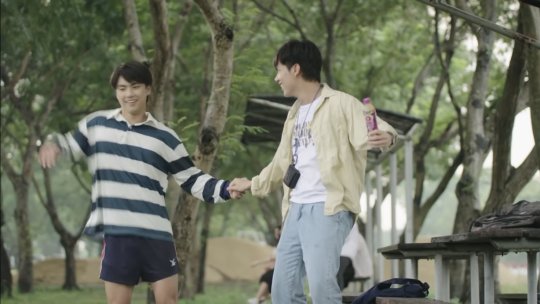
sometimes they just feel like best friends, which obviously fits into the show's themes, but more importantly because they embody the saying, "marry your best friend."
your partner is your favorite person, your best friend.
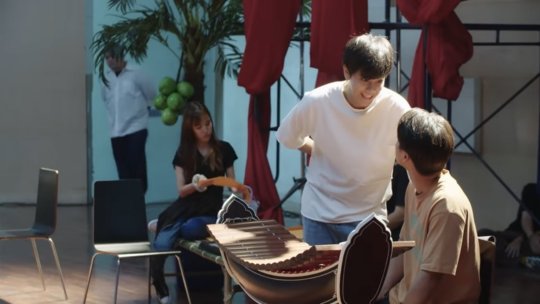
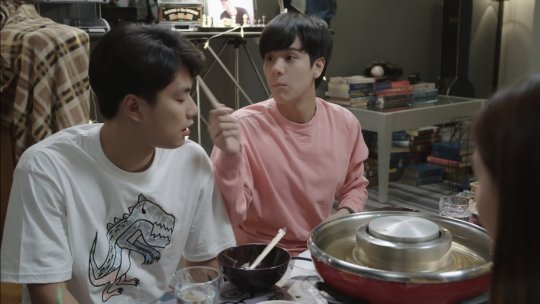
their dynamic settles, sits in that comfortable and lived-in place. not every action or scene is packed with romance, but you can still tell that these two are dorks in love.

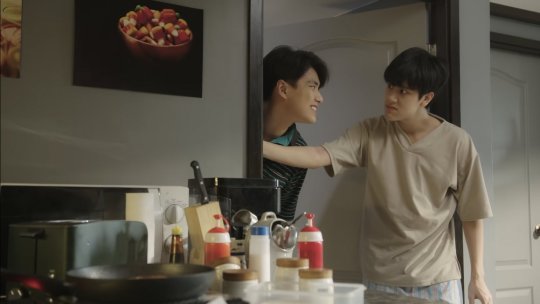
#bad buddy#bad buddy series#bbs#patpran#uranus#bad buddy the series#pran parakul#parakul siridechawat#pat napat#napat jindapat
240 notes
·
View notes
Text
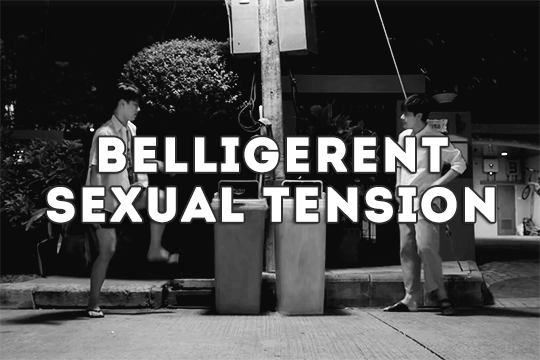
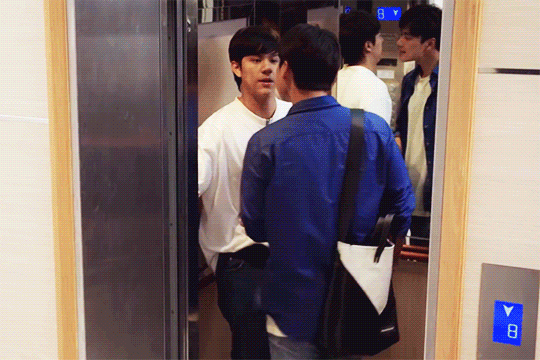


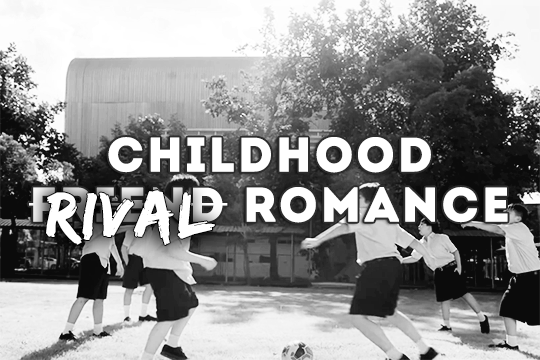
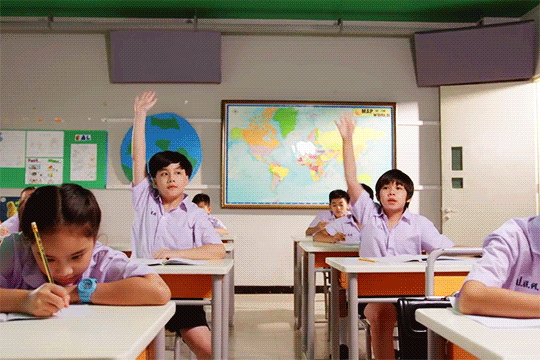


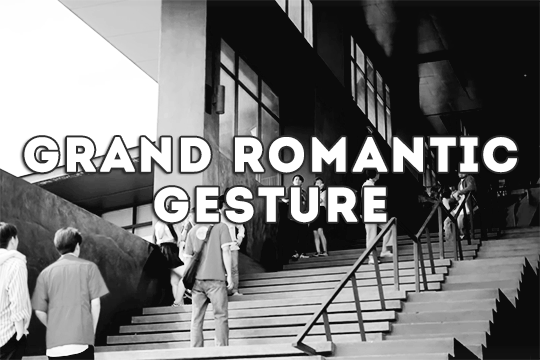


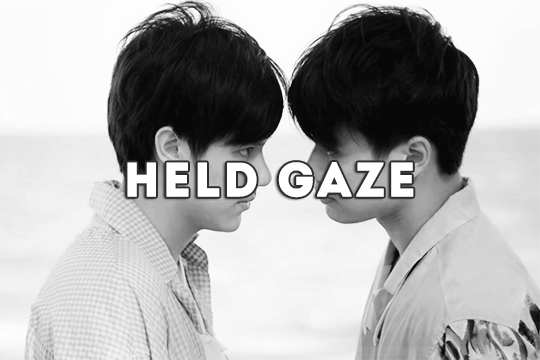
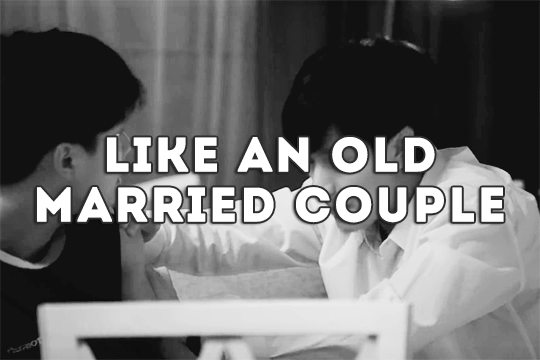

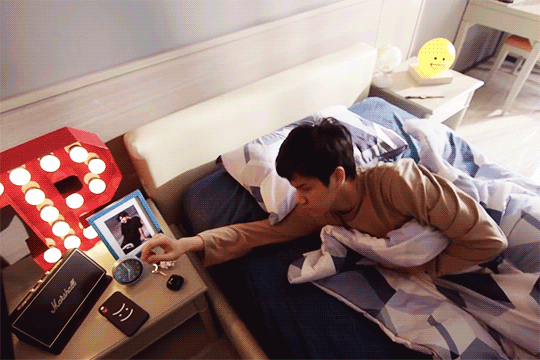


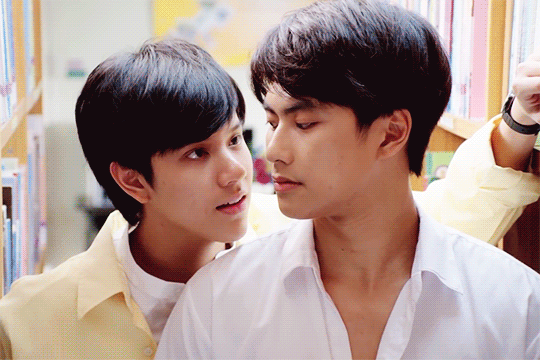

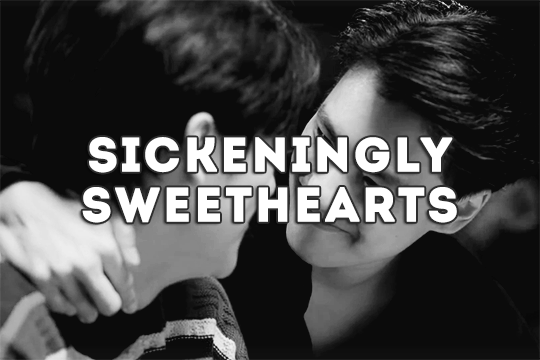
best of bad buddy: tropes edition | pat & pran
“Without people around, I can sit next to you just fine. But when there are other people, talking to you feels like a matter of life and death.”
“What can we do? We’re just born this way.”
- Star-Crossed Lovers
#bad buddy#bad buddy the series#patpran#pat x pran#asianlgbtqdramas#ohm pawat#nanon korapat#ohmnanon#bbstropes#mygifs#new year new gifseries 🥂#i haven't done tropes gifs in four years#i also wanna do a gifset of tropes that bbs avoids/subverts
742 notes
·
View notes
Text

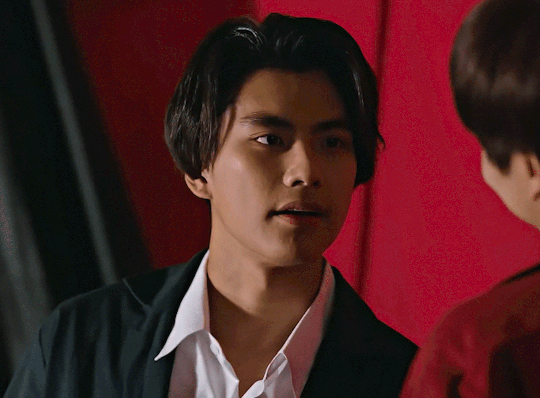
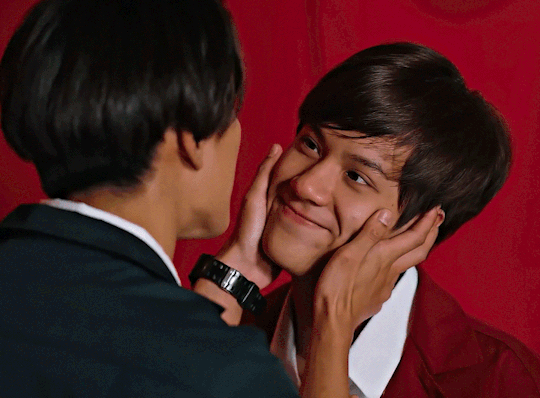

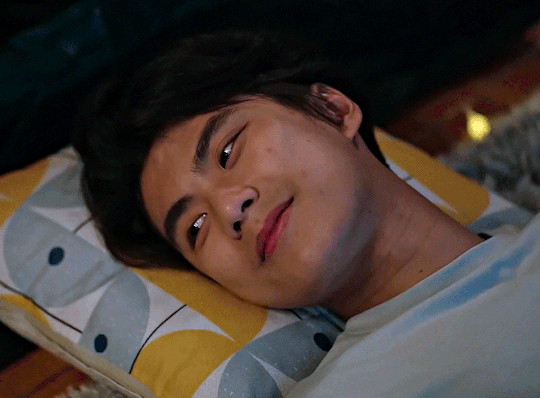

#some things never change
#bad buddy#our skyy x bad buddy#our skyy 2#bb#thai drama#asianlgbtqdramas#asian drama#thai bl drama#thai bl#nanon korapat#ohm pawat#patpran#pranpat#pat x pran#gmmtv series#vx:gifs#vx:tv:bb#well these look dreadful ngl#i have forgotten how to do clean gifs it seems
257 notes
·
View notes
Text
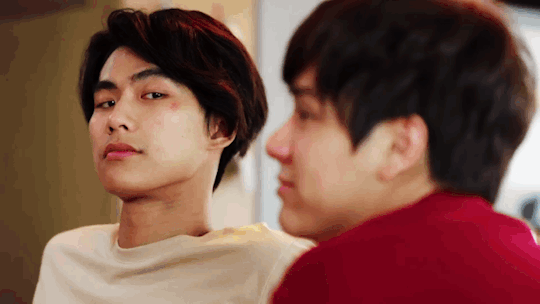
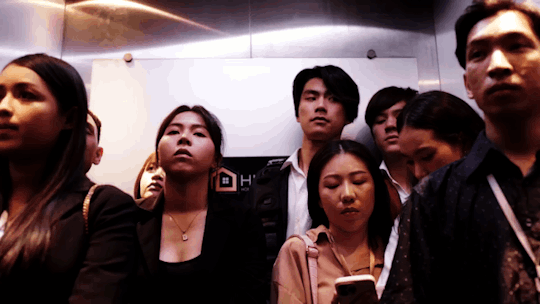
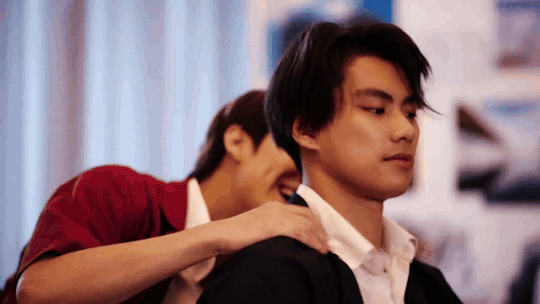

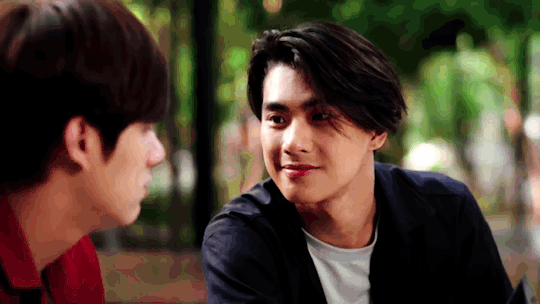




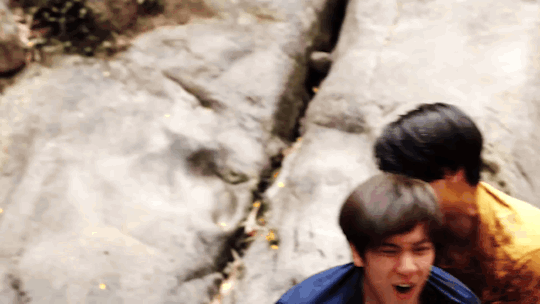
Bad Buddy's OST for Our Skyy 2 and they're back.
#bad buddy#our skyy 2.#our skyy 2 x bad buddy#our skyy 2 x BB#patpran#bad buddy the series#pat x pran#gmmtv#bl series#thai bl#thai drama#thai series#thaibl#asianlgbtqdramas#asian lgbtq dramas#bl drama#thai bl series#thai bl drama#thai bl gif#thai boys love#pranpat#pran x pat#music video gifs#asian lgbtq drama gif#asianlgbtqdrama
223 notes
·
View notes
Text
Pain, Trust, and Separation in Some Asian Dramas (The Second Post In a Series of Utterly Un-scholastic, Highly Personal Big Meta)......
AKA, Turtles Catches Up With Old GMMTV: The Bad Buddy Rewatch Edition, Part 2 -- How Themes of Pain, Trust, and Separation Create Structure and Narrative in Bad Buddy and Other Asian BLs
[The following is a preamble I use for my Old GMMTV Challenge posts, here we go! What’s going on here? After joining Tumblr and discovering Thai BLs through KinnPorsche in 2022, I began watching GMMTV’s new offerings -- and realized that I had a lot of history to catch up on, to appreciate the more recent works that I was delving into. From tropes to BL frameworks, what we’re watching now hails from somewhere, and I’m learning about Thai BL's history through what I’m calling the Old GMMTV Challenge (OGMMTVC). Starting with recommendations from @absolutebl on their post regarding how GMMTV is correcting for its mistakes with its shows today, I’ve made an expansive list to get me through a condensed history of essential/classic/significant Thai BLs produced by GMMTV and many other BL studios. My watchlist, pasted below, lists what I’ve watched and what’s upcoming, along with the reviews I’ve written so far.Today, I offer the second of four posts on Bad Buddy, and the second in a Big Meta series on pain in some Asian dramas, including QLs and/or het romances. I'll look today at how ideas of pain in love, trust in love, and separation of partners/family members creates narrative drive in Bad Buddy and other Asian BLs. THIS IS A LONG POST, caveat emptor.]
Links to the BBS OGMMTVC Meta Series are here: part 1, part 2, part 3a, part 3b, and part 4
Well, after a lot of titles and a chewy preamble (thank you for getting through that, y'all!), I'm here to say that I'm combining my two ongoing meta series into one big ol' post here that I've been dying to write for months. In the course of my watching the shows on the Thailand-based Old GMMTV Challenge watchlist, as well as watching shows from my BL gateway of Japan, I've noticed that the themes of pain and trust in love, along with voluntary or involuntary separation, have been used to create dramatic and narrative structure within Asian dramatic stories to many emotional effects.
I'm celebrating the incredible Thai BL drama that is Bad Buddy in my OGMMTVC series at the moment, and within my Big Meta series on pain in Asian dramas, I examine how themes of pain so very often harken back to artistic, and even traditional, viewpoints of how pain, suffering, and melancholy are natural cultural assumptions within many collectivist Asian societies. In my first Big Meta on pain and suffering in Asian dramas, I wrote that "accepting pain and suffering is a part of the life we decide to live, from an Asian cultural perspective." Suffering is a naturally assumed part of life, a very distinct and identified part of a Buddhist's lived life, and even outside of Buddhism, accepting and living with difficulties of all kinds -- wealth disparities, the struggle for a good education and/or a successful career, the struggle to conform to collectivist familial and/or social expectations, etc. -- are extremely common themes that are unwound on in Asian lives on a minute-to-minute basis. The idea that an Asian must live with pain is often a root of intergenerational trauma, passed along from generation to generation of Asian children-to-adults. The social mores by which Asians are raised and live, to assume what Westerners might call a lack of unconditional parental love and affection, are certainly in part rooted in an assumption that living with pain and without the, say, luxury of turning over one's emotions at any given moment, are an automatic given.
As I've plodded through the OGMMTVC watchlist, I noticed very often that separation of people -- whether those people are lovers, children/parents, or simply just adults within a group -- is often a major narrative turning point in the course of a dramatized relationship. Of course it would be; it's a common trope within the romance genre, for instance.
But I find the separation of people otherwise connected to each other -- and the assumed pain of that separation, and the trust that people may have to return to each other -- particularly fascinating within the realm of Asian dramas, for reasons relating to the assumption of pain and suffering in one's life within Asian cultures that I mentioned above. In other words, the pain of separation, and the trust that one might have that one person will come back to another person -- are givens within the scope of Asian life.
In the following dramas, I note that separation is either a central storytelling point, or is a central focus of side characters:
1) The Thai filmmaker, Aof Noppharnach, has explored separation of people/lovers in many of his shows, including Still 2gether, A Tale of Thousand Stars (in multiple forms), and in Bad Buddy (also in multiple forms, romantic and/or familial).
2) Also from Thailand, Until We Meet Again and I Promised You The Moon are two non-GMMTV dramas in which separation of lovers plays an important concluding narrative role.
3) From Japan, the movie version of Cherry Magic: 30 Years of Virginity Can Make You a Wizard?! captures an important central narrative of separation that leads the franchise's two protagonists, Adachi and Kurosawa, to explore depth in honesty and intimacy that they may not have otherwise achieved in their everyday lives.
The painful separation that occurs in Aof Noppharnach's shows is most often related to the outside forces of life as it needs to be lived -- very often economically -- within or external to Thailand. In Bad Buddy, Pran leaves for Singapore for two years. I'm going to unwind much more on Pran leaving for Singapore in the final installment of my Bad Buddy OGMMTVC meta series, particularly by way of how he can do it, emotionally. But I want to offer a quick note about Pran's departure that the show gives a hint to (despite the pain that we feel in our hearts for Pat's loneliness from Pran, as depicted so beautifully by Ohm Pawat and his silent and longing existence as Pat in the first half of the Bad Buddy series finale). The BBS finale has Pran stating that he'll only be away for two years, and that the pay and the opportunity for an excellent architecture job were better in Singapore. In conversation with the fabulous Thai blogger, @recentadultburnout, RAB mentioned that this is a common occurrence among young Thais -- to move overseas for better job opportunities.
In spite of my heart breaking a bit for Pran being away from Pat when I first learned about his leaving for Singapore -- when RAB put Pran's departure in that context, I had to slap my cheek a bit. Because! I'm a child of Asian immigrants. Separation from family for better economic opportunities is a HUGE part of our paradigm of life between continents. As my Asia-based uncle, my mother's brother, once put it, in regards to my mother: "one of the children in our families always had to move away." For my mother's family, it was my mom who shipped off. Besides individuals seeking better economic opportunities for themselves, the economies of many Asian countries are dependent on the reception of remittances from overseas family members sending money back to their home countries, as my mom did for years; the Philippines is particularly notable for having a nearly 9% contribution from overseas remittances to its gross domestic product. In other words? The separation of loved ones is literally built into the financial frameworks of many Asian nations.
The separation of children or partners to overseas locales for the sake of better salaries and/or opportunities is simply a more assumed part of the cultural paradigm, I'd argue, in Asia than in the West. Family separations for jobs are extremely common in Asia; in the West, I'm not sure they are as assumed, especially for extensive separations, as the value placed on keeping a family unit together for cultural or spiritual reasons seems to be more a part of the Western fabric of life (despite our high rate of divorce).
We see an even more permanent economic separation happen in Still 2gether between two side characters -- Type, played by Toptap Jirakit, who is Tine's (Win Metawin) brother, and Man (Mike Chinnarat), who is Sarawat's (Bright Vachiwarit) friend. Man chased after Type during the first 2gether season; in Still 2gether, they're navigating their committed relationship, as Type contemplates, then accepts, a permanent job offer in Phuket, hours away from their home base in Bangkok.
As @lurkingshan put it, I might be the only person on the planet contemplating Type's and Man's relationship (lmao, it do be true), but I found Type's last conversation with Man, on the beach, to be particularly direct and moving for someone who has no immediate plans to move back to the side of the person he's dating.
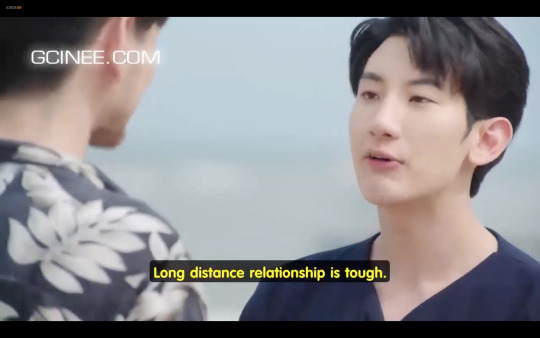
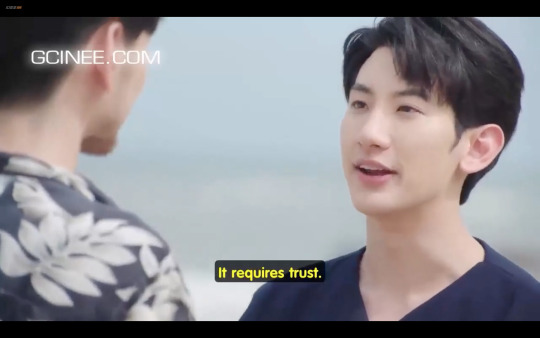
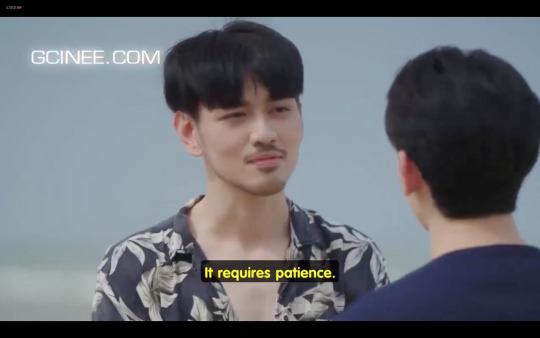
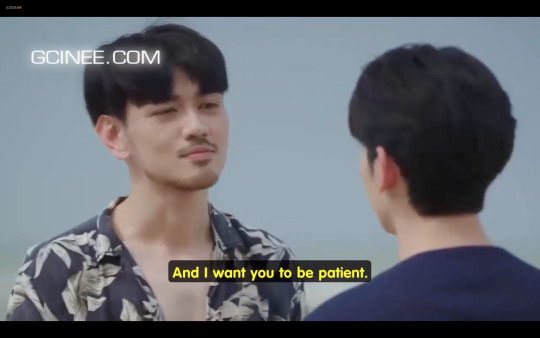

I think about this scene against the structure of the short series that is Still 2gether, which is centered around the protagonists of Sarawat and Tine being temporarily separated as they prepare to compete in a university-wide tournament. Sarawat has the most lovely contemplation on love during this separation, and even Aof Noppharnach himself admits that the glance that Sarawat and Tine give to each other as they pass each other in the lead-up to the ultimate tournament is his favorite scene he's ever filmed (!!!) (and that scene is sooooo reminiscent of Pran's and Pat's pinky-hold after their public "break-up").
In other words: Still 2gether is ALL about separation, and contemplating the strength of love relationships in the face of those separations. While Sarawat and Tine will get back together, after that tournament -- Type and Man are separated for the foreseeable future. There is no end indicated to the patience that Type wants from Man. The conversation is just, THERE, and hanging -- there's an acknowledgment that long-distance relationships are tough, but Type isn't offering to quit his job and move back to Bangkok. Instead, Type and Man are left to accept the reality that there is no end in sight to their separation.
And I think this was incredibly bold of Aof Noppharnach to include in a GMMTV BL that otherwise ended happily for Tine and Sarawat, the main protagonists. What I admire about Aof's works are these sly inclusions of open-ended, sometimes melancholy non-resolutions, either for his main or his support characters, that leave us as viewers often slightly unsatisfied or unfulfilled. He did this in particular with the character of Aof in Gay OK Bangkok, a web series that he screenwrote in 2016; and many might say that Pran being away in Singapore is also not the most satisfying of endings for our beloved PatPran in Bad Buddy. To me, these decisions to do this artistically are just incredibly reminiscent, again, of the kind of pain that we as Asians have been culturally attuned to accept, for the sake of economics, and/or for the sake of the betterment of our loved ones.
Besides economic separations in Aof Noppharnach's works, we also have separations related to family demands and desires. In A Tale of Thousand Stars and Our Skyy 2 x A Tale of Thousand Stars, we see Tian leaving Phupha's side for two years to study for a graduate degree at Tian's mom's insistence; and we see Phupha refusing to join Tian, after Tian has graduated and moved back to Pha Pun Dao, on trips Tian takes back to Bangkok to celebrate his birthday with his parents.
When I rewatched ATOTS earlier this year, I noted that both Phupha and Tian were remarkably bad communicators throughout the original series -- and I posited that, in large part, their terrible communication was borne out by way of the both of them being raised in traditionally masculine Asian households that seemed to not allow for leeway regarding emotional revelations. BOTH Phupha and Tian were expected and intended to follow in the footsteps and demands of their family members. To the end of the ATOTS storyline in Our Skyy 2, Phupha brings up his parents -- and he hears what he has been wanting to confirm from Tian's parents, in their desire to have Phupha take care of Tian for the rest of their lives.
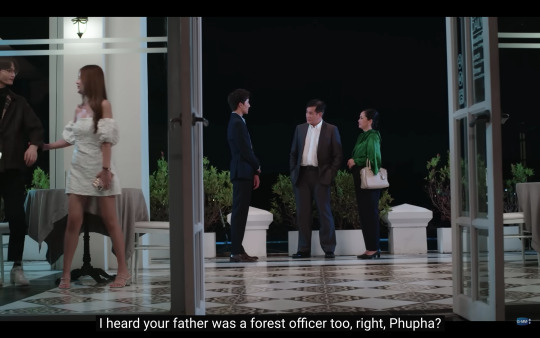

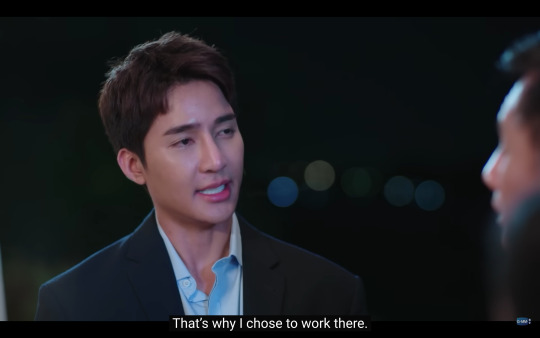
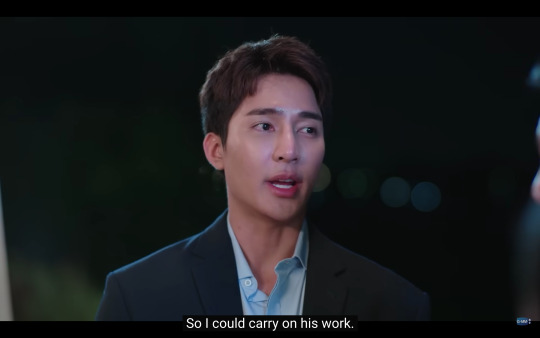
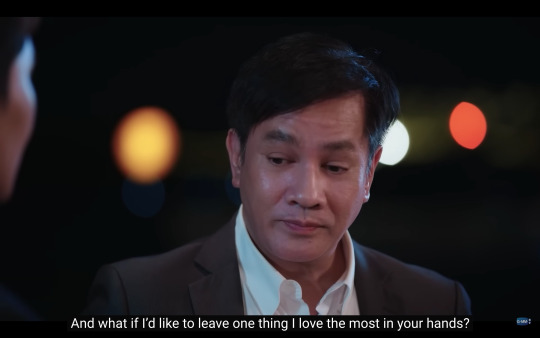
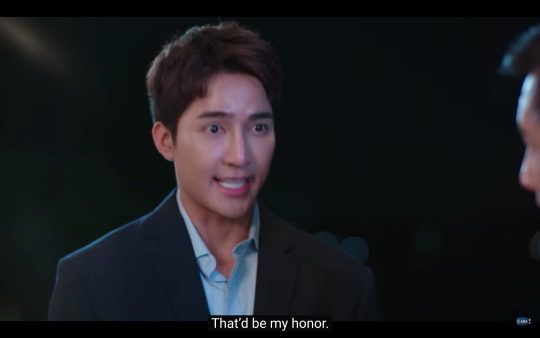
Phupha in particular needed to have multiple gateways opened to him, vis à vis Tian's family, in order to properly and openly confirm his permanent love and commitment to Tian. If Phupha didn't have that? He was willing to be separated from Tian, either temporarily, or at length. Phupha needed a kind of culturally accepting door opened to him -- as a man raised in what we assume to be a rural and traditional environment that may very well have not allowed for a gay man to live openly and honestly. Phupha indeed follows in his father's footsteps, to the extent of never leaving Pha Pun Dao, and demanded that he have Tian's family's approval before making the final commitment to Tian to love Tian forever.
I find the cultural nuances of nuclear family separation, or separation encouraged by nuclear family, to be particularly heartbreaking in many of Aof Noppharnach's works. We know that Jim and Jam, brother and sister in Moonlight Chicken, ran away from their Isan hometown as youths to find their lives in Pattaya, where we meet them in the context of that show. But separation either from nuclear family, or more impactfully, done by nuclear family, is most evident in Bad Buddy.
Besides Pran voluntarily leaving for Singapore, we know that Pran has been involuntarily separated from Pat before -- when Pran was transferred to a boarding school in 10th grade by his mother, Dissaya. Before that transfer, Pran and Pat were technically "separated" by their parents in so far as they were not supposed to become friends -- all while competing heavily against each other in every category of life.
That boarding school transfer? That wasn't just separating Pran from Pat. What I found remarkable about that separation during my recent BBS rewatches is that Dissaya HERSELF chose to be physically separated from her own son, for the sake of her rivalry with Pat's father, Ming.
I'm thinking about this particularly from the words she used with Pran as they sat at breakfast together before Pran started his second year at university, when Dissaya said that Pran could date anyone, men or women, as long as he "didn't date [the next door kid]."
My interpretation of that perspective is that Dissaya did not want Pran to relieve the heartbreak that she herself experienced when she was close with Ming in her teenage years.
In other words: she chose to send her son away in the face of her ongoing, lifelong fear that Ming and his family would once again wreak havoc on her and her clan.
In the continuation of the intergenerational trauma wrought upon Pat and Pran by their parents -- as a mother myself, this seems to be particularly egregious. Dissaya would have rather had her son AWAY FROM HER, than to contemplate her son even being WITHIN physical proximity to Pat in the context of her hatred of Pat's father, Ming, and the fear that she had that the Jindapats would negatively influence the Siridechawats again.
(The wonderful @telomeke reminded me, in conversation on this topic, that the first question Dissaya asks Pran, after learning about the first faculty fight in episode 1 when Pran re-encounters Pat for the very first time, was, "Did he hurt you, Pran?" Dissaya cannot bear to allow the Jindapats to hurt her son, or her family, ever again.)
I wrote in my first Big Meta on pain and suffering that Asian parenting expectations and mores are far more conditional than they are in the West, as parenting mores in the West are centered around unquestioned and unconditional love from parents to children. So much of Bad Buddy meta out there focuses on the internal experiences of Pran and Pat. When I sat back to think about Dissaya making the decision for herself to be separated from her son for years -- and then to also contemplate pulling Pran FROM COLLEGE when she learns that Pat goes to Pran's university -- I mean. We know Dissaya and Ming both tried their best to embody their hatred of each other into their children. But Dissaya takes it a couple steps further, by attempting to literally control Pran's physical existence vis à vis Pat, which -- and I'm going to sound like a judgmental Westerner here, even as an Asian -- strikes me as out of line by way of just pure emotional projection onto one's children.
When Pran goes to Singapore, at the end of the series, it's out of his own volition. Again, I'll write more about this at the end of my BBS OGMMTVC meta series. But what he experienced by ways of many TYPES of separation from Pat throughout his life -- competitively, emotionally, and then physically -- are extensive. He was physically separated from Pat by Dissaya. He was theoretically "separated" from Pat emotionally, by being discouraged in having a friendship with Pat. He is physically separated from Pat *again* when he goes to Singapore. And I posit later in this piece that Pat and Pran had another theoretical "separation" when they are pretending to be broken up throughout the course of their relationship.
When I think about what teenage Pran must have felt to be *physically sent away* -- BY and FROM his own family, for their sake of his family's desires to avoid ANOTHER family -- it explains a hell of a lot more about Pran's tendency to dissociate, particularly during stressful times. (We see this when he's alone at the demolished bus stop, and cutely in Our Skyy 2, as Pat encourages a grumpy Pran to go to Pha Pun Dao.)
And where Pat balanced Pran out -- where Pat could offer the kind of companionship, and relaxed and equitable communication that Pran had never had with his family -- was where Pran could finally experience truly open and SAFE love from and with another person, another person who wouldn't *send him away* if Pran didn't play by their rules. Instead, Pat fought by Pran's side, and Pran was willing to fight, too, and they remained together, and safe in their love and trust.
Whew. Dissaya separating Pran from his own family, from herself -- to leave him alone at boarding school -- seriously punches me in the gut, especially as a mother myself. I'm thinking about a teenager, on the cusp of adulthood, alone to contemplate his unending love for Pat, and I'm like.... I wouldn't leave a kid alone like that for a moment. But for Dissaya, her husband, and their pride? It seemed to be a worthwhile decision in that moment. A decision that we know would blow up in their faces in episode 10 of Bad Buddy.
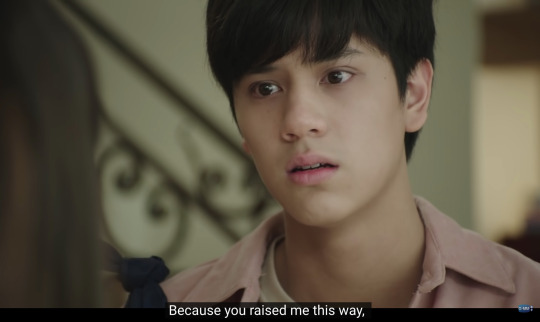
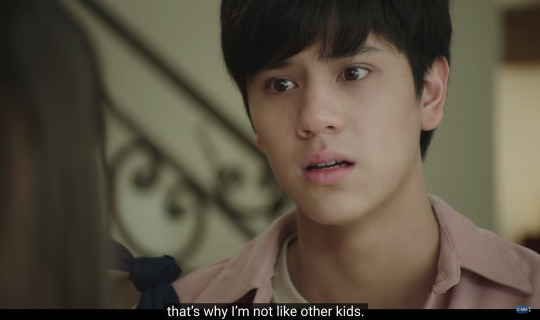
In Pran's first separation from Pat -- Pran did not have personal agency. He did have agency later on, as he moved to Singapore, which again, I'll contemplate in a further meta.
Two instances where I was impressed by protagonists leveraging their agency vis à vis temporary separations from their partners was in Until We Meet Again and in I Promised You The Moon.
UWMA's Pharm was first and foremost presented as a blushing maiden. HOWEVER: Pharm demonstrated quite a bit of sexual agency early in the series. He was forward in his crush on Dean. He contemplated openly being gay. And he wasn't afraid to push Dean away when Dean was moving too fast sexually.
At the end of the series, after Dean and Pharm have resolved their spiritual connection vis à vis the embodied spirits of Korn and Intouch meeting once more -- Pharm wants to know if the love between him and Dean is real, and independent of the influence of the spirits of Korn and Intouch. So: Pharm asks for a break.
Throughout UWMA, Dean is the obvious seme, and Pharm is the blushing uke. I squealed in DELIGHT when I first watched Pharm asking for the break. Yes, Pharm loved Dean -- and what I saw in Pharm's asking for a temporary separation was truly out of that love, to confirm between the both of them that their relationship was very much indeed a forever relationship. God, I get chills thinking about it: Pharm was safe enough in his sphere with Dean to ask for and to GET the agency-driven space that HE NEEDED to feel fully confident in the relationship. That was a risky move that paid off for the two guys in dividends in the end. Dean had no choice but to say yes there.
The fabulous Oh-aew in I Promised You The Moon goes even further than Pharm. He fucking breaks up with Teh! After Teh cheated on Oh-aew! YES, HOMEY, YES! No wibbling on Oh-aew's end. Oh-aew was devastated, yes. But he knew he had to have Teh out of his life in that moment, for the sake of Oh-aew's own happiness, growth, and development. He even rejects Teh's reach-out at the end of their college careers.
What stuck me as so golden about the ending of IPYTM was that that break-up wasn't actually presented as temporary. They were apart for OVER A YEAR (thank you kindly to @shortpplfedup for the temporal fact-check!). Oh-aew held his ground. He needed his time and space. He needed to grow! And he valued that, individually.
I'm celebrating these two instances of agency-driven separations because of the style of their intention vis à vis the protagonists asking for, needing, and leveraging these separations. With the economic and involuntary separations I talked about earlier -- it's like there was a higher need, whether it was for money, a better career opportunity, fear, or selfishness on the part of a family to create the separation.
With Pharm and Oh-aew: the separations they demanded were purely personal and for their own growth. We know now that Pharm and Oh-aew get their endings with their partners. Pharm has a purely happy ending with Dean in Between Us. Oh-aew's ending with Teh is open-ended -- we don't know what chaos Teh will wreak next -- but at least we know they're navigating that chaos together again.
The last drama I wanted to take a look at regarding pain, trust, and separation is the fabulous movie continuation of Cherry Magic: 30 Years of Virginity Will Make You a Wizard?! (I always love writing ?! whenever I talk about Cherry Magic, lol).
The central separation in the movie of the two protagonists, Adachi and Kurosawa, comes about when Adachi is transferred to Nagasaki for work. As @neuroticbookworm and @lurkingshan can attest to: a Western viewer of Japanese BLs will often find themselves screaming to a screen, "JUST TALK ALREADY!," and a uniquely common aspect of Japanese doramas is that so much of communication in Japanese culture is silent, unsaid, kept internal by collectivist social pressures to not make waves with another person -- which automatically creates ongoing questions of trust between partners. When Adachi (Akaso Eiji) shares with Kurosawa (Machida Keita) that Adachi will be moving, Kurosawa shares in words that he's happy for Adachi, but through very simple body language, communicates that he is feeling otherwise.
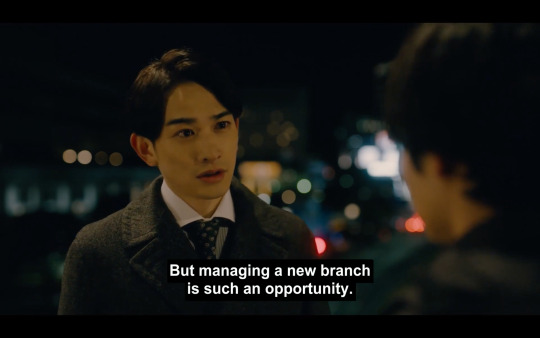
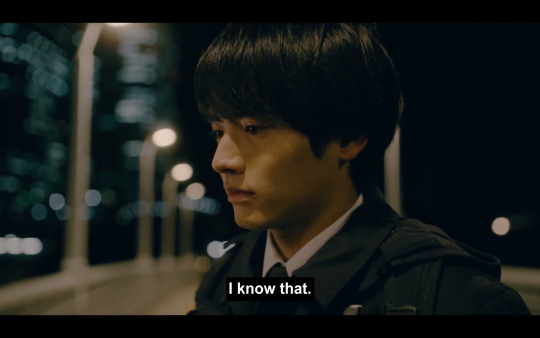
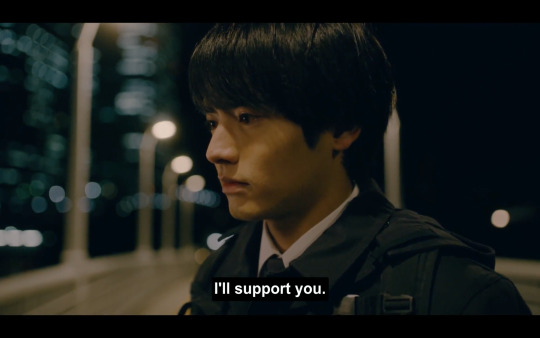
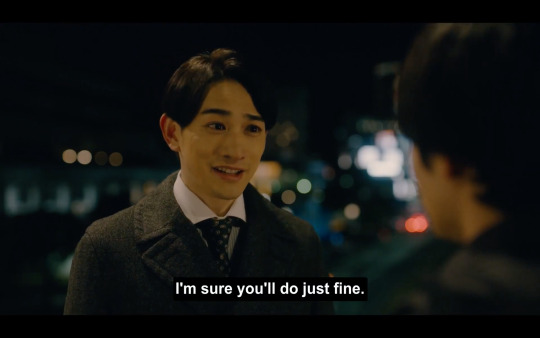
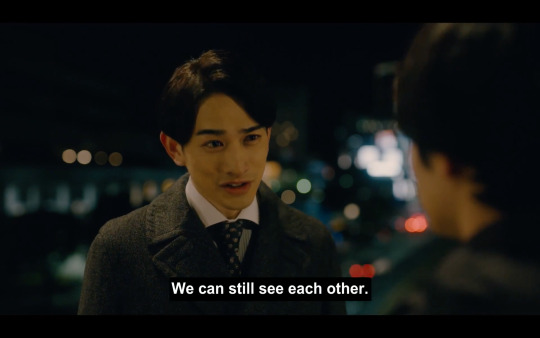
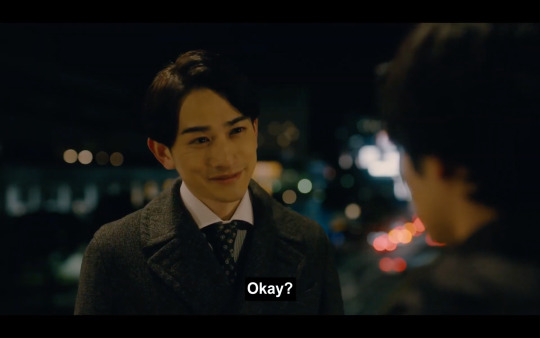
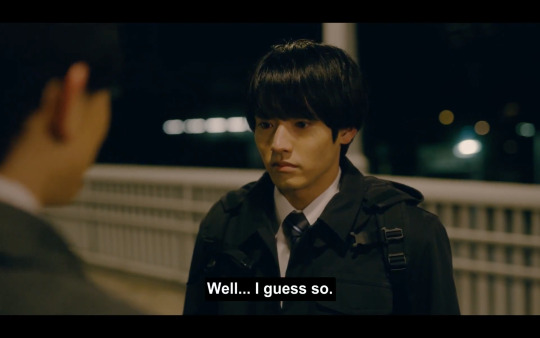
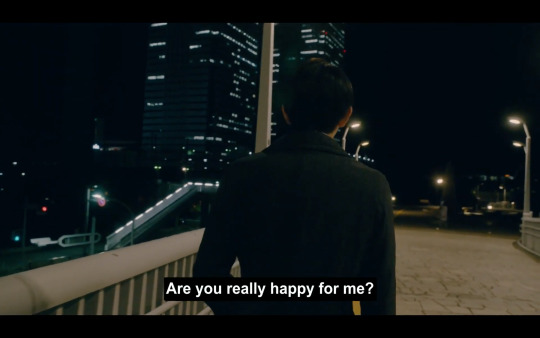
Later in the movie, Adachi gets into an accident in Nagasaki, and Kurosawa rushes to be by Adachi's side. Kurosawa is clearly traumatized. And Kurosawa finally reveals his feelings about the entire situation -- a rare display of direct emotional confession.


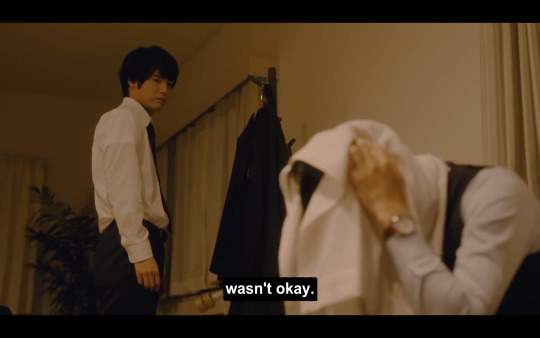
We think that Adachi moved to Nagasaki for this job opportunity -- separating himself from the incredibly devoted and head-over-heels-in-love-with-Adachi Kurosawa. Adachi knows well enough that Kurosawa is suffering in this separation. But later in the movie, after Adachi has moved back with Kurosawa, do we learn Adachi's true intentions. Adachi wants to make himself invaluable at work -- so that Adachi's and Kurosawa's shared company will not separate them if the company finds out about their relationship.
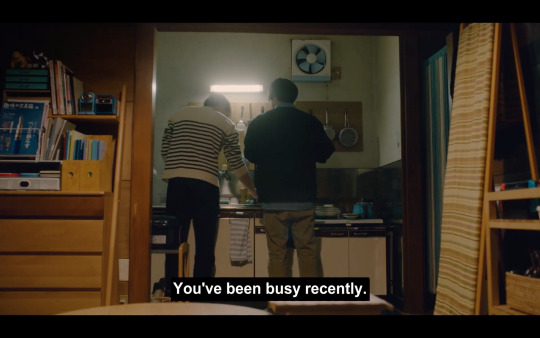

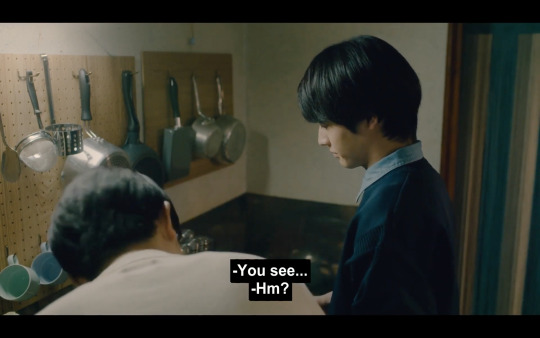
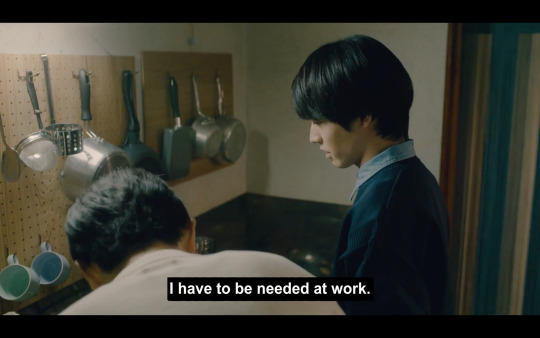

This particular conversation between Adachi and Kurosawa -- after their separation, after they've moved in together -- is a huge turning point in the movie for Adachi, who had usually been the reluctant uke in their relationship prior to this moment. In this conversation, Adachi expresses his fear that outside forces will eventually separate them, and he wants to do what he can to ensure the safety of their relationship.
To me, this is incredibly reminiscent of the compromises Pran and Pat make in Bad Buddy to keep their relationship secret -- another theoretical "separation" -- from their parents for the health, safety, and viability of their relationship.
As well, this conversation between Adachi and Kurosawa moves forward into Adachi's desire to come out to their families. He was inspired by the immediate aftermath of the accident, in which Kurosawa was the last person to find out that Adachi had gotten hurt -- only after Adachi's family and company were notified.
The nuances of this separation between Adachi and Kurosawa -- and what the separation LED TO, which was an eventual and permanent commitment between Adachi and Kurosawa -- are incredibly layered. Adachi made an economic separation from Kurosawa. But it was also rooted in his desire to acclimate his company to his company's dependence on Adachi, so that the company would choose Adachi's contribution to the company over the potentially taboo reality of his same-sex relationship with a colleague in Kurosawa. In other words: he wanted to leverage the separation and his work performance upon his return, to render the company no choice in choosing Adachi's economic performance over his personal and private choices.
(One insight into Japanese culture is that for decades, Japanese corporations have wanted their employees to be married, to complete a seamless connection between household and "office" families. The Japanese BL Kinou Nani Tabeta?/What Did You Eat Yesterday? makes reference to the fact that the main protagonist, Shiro, becomes an independent lawyer because, as a gay man, he may have been pressured to take a wife in another, more group-oriented corporate setting.)
AND, following this, Adachi wanted to come out to his and Kurosawa's families, to also acclimate them to their relationship, so that their families would also not threaten the sanctity and safety of their relationship. And his gamble worked -- and their families accepted them, and they were able to make a permanent commitment to each other.
Without a strategically economic separation, Adachi and Kurosawa could not have achieved key moments of communication that led to their ability to find safety in their external environments, and make a personal and private permanent commitment to each other. The separation to Nagasaki was Adachi's lever to move their relationship forward.
It's so nuanced, so layered, and so strategic on Adachi's end, to use the work separation and his commitment to his company as such a motivator to propel his relationship forward and permanently with Kurosawa -- especially vis à vis the unique nuances of spoken and unspoken communication in Japanese society, which are remarkably different than the styles of communication we see in Thai dramas.
In Pran's and Pat's conclusion in the Thailand of Bad Buddy, they go in the opposite direction: for the sanctity and safety of their relationship, they act out a break-up scenario (with Dissaya telling Pran, "come back to your family," ha), and keep their committed relationship a secret. And this happens *two years* before the context of an actual, physical separation when Pran decides to move to Singapore after graduation.
It's a bit of a switcheroo from what we'd expect by way of open vs. closed communication between Japan and Thailand. But both scenarios, from Cherry Magic to Bad Buddy, work brilliantly well to ensure that all relationships are safe and solidified.
I'm not sure that I can say, globally, that separation from one's nuclear family, or separation from a partner, are common occurrences in manifested everyday reality. As I mentioned before, the economies of many countries are dependent on the physical separation of their citizens to other locales to send back monetary remittances. But more often than not -- when partners are partnered, they tend to want to stay by each other's sides.
I love that many Asian dramas do not shy away from the many realities as to why partners or children may be voluntarily or involuntarily separated from loved ones. Our beloved dramas show us the devastation of involuntary separations, as rendered by Dissaya unto Pran. We see that economic separations can actually LEAD to a solidifying of relationships in the case of Adachi and Kurosawa. We see that family-motivated separations, in the cause of Phupha and Tian, simply needed the investment of time for their relationship to reach a point of comfortable commitment. We see that agency-driven separations by Pharm and Oh-aew can lead to emotional clarity. And, we see that theoretical, secret-kept "separations," of the kind that Pat and Pran created for themselves, to protect their relationship, were risks worth taking, simply for them to be together and happy.
Pain and happiness are not emotions independent of each other. At least in the eyes of my Asian cultures, human beings embody all emotions, all the time. Humans are certainly primed, internally and socially, to seek happiness and balance. But as I've posited here in this post -- is there pleasure without pain? The pain of separation, the trust that partners and family members can learn from each other through separation, and the lessons and communicative ability to solidify relationships after the obstacles of separation, are all themes of life that, I think, are worth unwinding on, in glorious emotional detail. And I love that our beloved Asian dramas do not shy away from these examinations.
(Tagging @dribs-and-drabbles and @solitaryandwandering by request! If you'd like to be tagged, please let me know!)
[Well, this one was a doozy -- if you got through it all, I thank you! Next up, next week, is another post I've been dying to write for months. I had the opportunity to engage in lengthy conversation with a number of FABULOUS Asian Tumblr bloggers, all of us Bad Buddy stans, to reflect on our experiences as Asian reviewers watching BBS and to talk about what we related to. I have a list, a WHOLE LIST! of themes to expound on. I'm calling it Asian Cultural Touchpoints Within Bad Buddy. And I may need to split it into two posts, because there's a lot to talk about. Join me and my friends next week in our continued Bad Buddy brain-rot sesh!
Here is the status of the Old GMMTV Challenge watchlist. Tumblr's web editor loves to jack with this list; please head on over to this link for the very latest updates!
1) The Love of Siam (2007) (movie) (review here)
2) My Bromance (2014) (movie) (review here)
3) Love Sick and Love Sick 2 (2014 and 2015) (review here)
4) Gay OK Bangkok Season 1 (2016) (a non-BL queer series directed by Jojo Tichakorn and written by Aof Noppharnach) (review here)
5) Make It Right (2016) (review here)
6) SOTUS (2016-2017) (review here)
7) Gay OK Bangkok Season 2 (2017) (a non-BL queer series directed by Jojo Tichakorn and written by Aof Noppharnach) (review here)
8) Make It Right 2 (2017) (review here)
9) Together With Me (2017) (review here)
10) SOTUS S/Our Skyy x SOTUS (2017-2018) (review here)
11) Love By Chance (2018) (review here)
12) Kiss Me Again: PeteKao cuts (2018) (no review)
13) He’s Coming To Me (2019) (review here)
14) Dark Blue Kiss (2019) and Our Skyy x Kiss Me Again (2018) (review here)
15) TharnType (2019-2020) (review here)
16) Senior Secret Love: Puppy Honey (OffGun BL cuts) (2016 and 2017) (no review)
17) Theory of Love (2019) (review here)
18) 3 Will Be Free (2019) (a non-BL and an important harbinger of things to come in 2019 and beyond re: Jojo Tichakorn pushing queer content in non-BLs) (review here)
19) Dew the Movie (2019) (review here)
20) Until We Meet Again (2019-2020) (review here) (and notes on my UWMA rewatch here)
21) 2gether (2020) and Still 2gether (2020) (review here)
22) I Told Sunset About You (2020) (review here)
23) YYY (2020, out of chronological order) (review here)
24) Manner of Death (2020-2021) (not a true BL, but a MaxTul queer/gay romance set within a genre-based show that likely influenced Not Me and KinnPorsche) (review here)
25) A Tale of Thousand Stars (2021) (review here)
26) A Tale of Thousand Stars (2021) OGMMTVC Fastest Rewatch Known To Humankind For The Sake Of Rewatching Our Skyy 2 x BBS x ATOTS (re-review here)
27) Lovely Writer (2021) (review here)
28) Last Twilight in Phuket (2021) (the mini-special before IPYTM) (review here)
29) I Promised You the Moon (2021) (review here)
30) Not Me (2021-2022) (review here)
31) Bad Buddy (2021-2022) (thesis here)
32) 55:15 Never Too Late (2021-2022) (not a BL, but a GMMTV drama that features a macro BL storyline about shipper culture and the BL industry) (review here)
33) Bad Buddy (2021-2022) and Our Skyy 2 x BBS x ATOTS (2023) OGMMTVC Rewatch (The BBS OGMMTVC Meta Series is ongoing: preamble here, part 1 here, and more reviews to come)
34) Secret Crush On You (2022) [watching for Cheewin’s trajectory of studying queer joy from Make It Right (high school), to SCOY (college), to Bed Friend (working adults)] (watching)
35) KinnPorsche (2022) (tag here)
36) KinnPorsche (2022) OGMMTVC Fastest Rewatch Known To Humankind For the Sake of Re-Analyzing the KP Cultural Zeitgeist
37) The Eclipse (2022) (tag here)
38) The Eclipse OGMMTVC Rewatch For the Sake of Re-Analyzing an Politics-Focused Show After Not Me
39) GAP (2022-2023) (Thailand’s first GL)
40) My School President (2022-2023) and Our Skyy 2 x My School President (2023)
41) Moonlight Chicken (2023) (tag here)
42) Bed Friend (2023) (tag here)
43) Be My Favorite (2023) (tag here)
44) Wedding Plan (2023)
45) Only Friends (2023) (tag here)]
#bad buddy#bad buddy the series#bad buddy meta#bad buddy the series meta#backaof noppharnach#aof noppharnach#nanon korapat#ohm pawat#ohmnanon#patpran#pran x pat#pat x pran#still 2gether#a tale of thousand stars#atots#our skyy 2 x bad buddy x a tale of thousand stars#cherry magic#cherry magic the movie#until we meet again#i promised you the moon#i told sunset about you#ipytm#itsay#moonlight chicken#the bbs ogmmtvc meta series#turtles catches up with the essential bls#turtles catches up with thai bls#turtles catches up with old gmmtv#the old gmmtv challenge#ogmmtvc
74 notes
·
View notes
Text
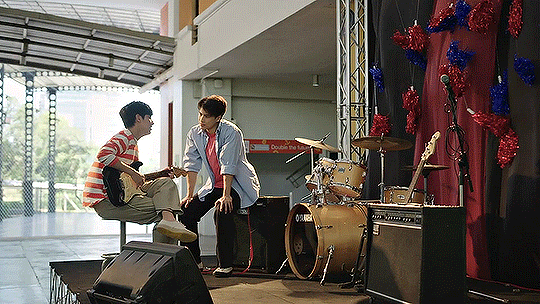
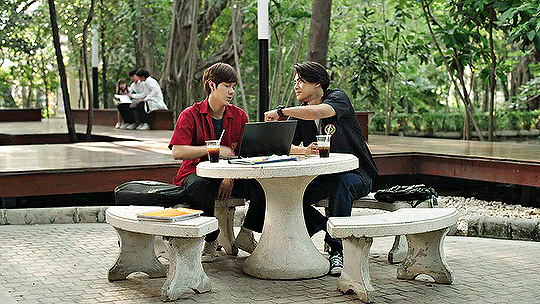
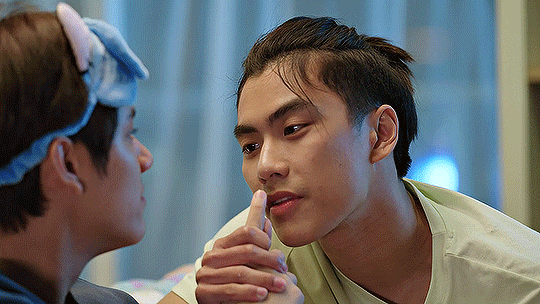
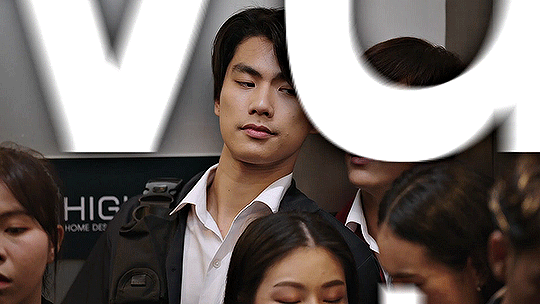


Pat & Pran in the Our Skyy 2 trailer

#THEM!!!! THEY!!!!! AAAAAH!!!!!#bad buddy#bad buddy the series#patpran#pranpat#ohm pawat#nanon korapat#ohmnanon#our skyy 2#gmmtv#lgbtedit#darcey.gif#darcey.txt#bl.gif#pat bb#pran bb#darcey.main#badbuddy.gif
930 notes
·
View notes
Text
Girls will say they feel normal about media then hit you with the ol 'ello yewchube play Bad Buddy [English Subs] Episode 5 Part 4 of 4
#if girls have visual tasks to complete they'll hit you with the ol 'ello shpotify play Cold Light Of Day by Across the Great Valley#bad buddy#patpran#pranpat#ohmnanon#pat bb#pran bb#pran parakul#pat napat#''ooh my comfort media feels like a warm hug'' ok well MY comfort media's m⚾m is beating me to death with a baseball bat#we are not the same
23 notes
·
View notes
Text
Who is Pat Naphat Jindapat?
Who his friends see
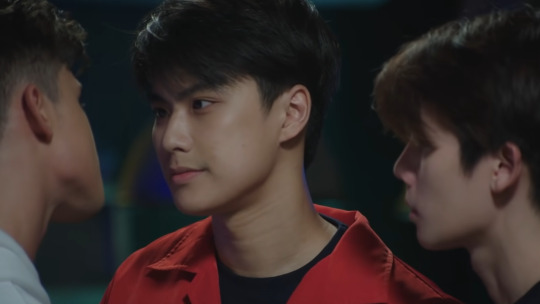
Who Pran sees
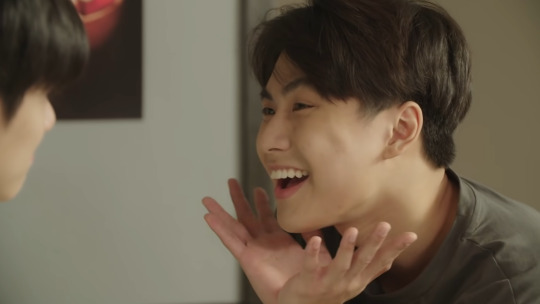
Who Phupha sees

#more Pat slander I'm afraid XD#I just can't help myself#bad buddy#pat napat jindapat#pat napat#our skyy: bb#our skyy x bad buddy
353 notes
·
View notes
Photo
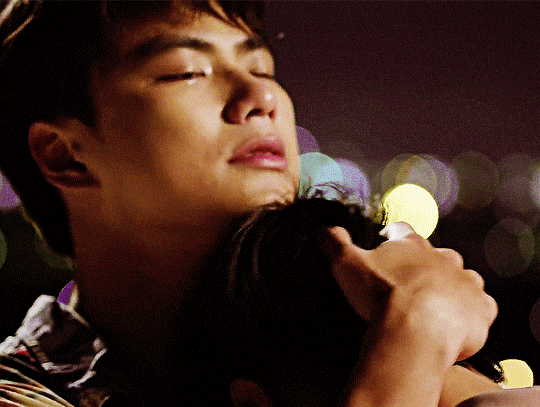
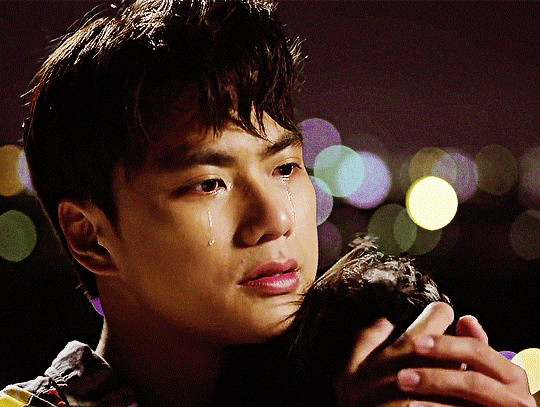

OHM PAWAT AS PAT in BAD BUDDY [2021]
#bad buddy#bad buddy the series#badbuddyedit#ohm pawat#pat jindapat#patpran#thai bl#bl drama#userdramas#asianlgbtqdramas#asiandramanet#dailyasiandramas#bb rooftop scenes never leave my mind so#enjoy the angst 🥰
433 notes
·
View notes
Text
happy to announce that ohm pawat made it through yet another show without being grazed by a bullet despite the fact that he had a gun shoved into his face on multiple occasions
and with that the gay romcom continues to be the only series in which ohm pawat ever ends up with a gunshot wound
#thank you may for taking the bullet for kong i was really worried for a hot second there yesterday#ohm pawat#wednesday club#bbs#the fact that#pat got shot#will never not be funny#and it's even funnier when you think about the fact that pat is the ONLY character in ohm's filmography#that gets wounded by a bullet#idk if this is as funny to everyone else as it is to me but like#imagine zac efron but the only movie his character ends up with a bullet wound is high school musical#it's just funny ok#esp considering the amount of shows ohm's characters have handled a gun or had one pointed at them#shows where you'd much more expect a shooting related injury#but no. it's the gay fucking romcom that has the character end up in the hospital from a gun incident#can you believe#bad buddy is the most show ever#airenyah plappert#adrm
135 notes
·
View notes
Text
The Greatest Kisses of All Time
So @neuroticbookworm just finished watching Old Fashion Cupcake and @waitmyturtles is never not watching Bad Buddy, and this naturally sparked a conversation around two of the best kisses of all time. The kiss between Togawa and Nozue in Episode 4 of OFC and the kiss between Pat and Pran in Episode 5 of BBS.
For as much as there are similarities in these four characters, namely that Pat and Nozue both exist for years without any understanding of Pran and Togawa’s feelings, and that Pat and Nozue both exist for years without realizing their own queerness. I don’t know how many people who may be reading this were around for the BL-Bracket Best Kiss competition, but myself and quite a few others on here were fighting tooth and nail for the final fighting ring to be Bad Buddy vs. Old Fashion Cupcake because these are just…such emotionally complex, beautifully shot, and masterfully performed feats of acting and filmmaking. But their kisses could not feel more different. So I wanted to take a moment to break these scenes down.
Bad Buddy, Episode 5
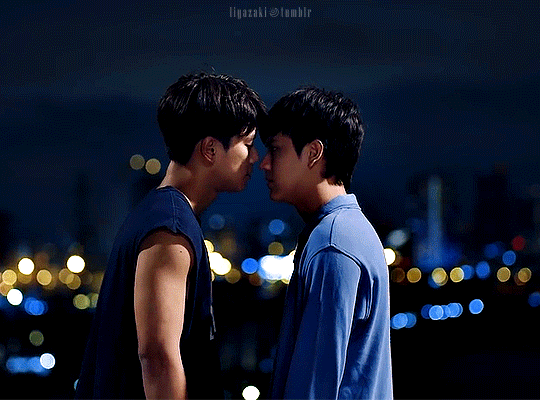
There is already so much want and hope and pain in Pran’s eyes when he turns around to face Pat. When Pran says “we aren’t even friends” Pat’s response is this extremely small, ironic smile and an exhaling of breath. When he responds to Pran’s statement, his is listing off all of these barriers to the two of them being together, the tow of them being friends with each other. But the way his voice sounds, the way the music supports makes the words and the emotions so dichotomous. Pat is listing all these reasons that they should not be together, but Ohm delivers these lines like Pat is telling Pran all the reasons they should be. And part of that has to do with the subtle ways in which he undermines the impossibilities of their friendship with the realities of it. “How can we be friends if we live next door to each other but can’t even talk?” but they do talk. They have spent their whole lives talking.
And I think you can kind of tell the way this kiss is going to go at the end (with Pran walking away) with how much sadder Pran progressively gets as Pat continues to talk “[when you were away] I was so damn happy” and Pran looks crestfallen. And again we get a dichotomy here with Pat listing off all these positives of Pran being gone from his life, but the tone that is being set by the irony in Pat’s face and the sadness in Pran’s is building on this idea. Pat is listing all these reasons why being apart from Pran was good for him, but Ohm delivers these lines like Pat is telling him all the reasons why being apart is not an option. The way that realization and hope comes in to Pran’s eyes, in to his face when Pat says “It was so depressingly lonely for me”. Like, that line is fucking tragic, this moment is fucking tragic. Pat admitting how lonely he was is sad, and yet it is the thing that gives Pran hope that finally finally his feelings may be reciprocated.

This is the constant trend. Why should the lines “Do you want to be my friend?” “No.” be so heartwarming and hopeful, so honest and pure, and raw when at face value saying you don’t want to be someone’s friend would not be regarded as a positive thing. The moment of happiness when Pat pulls away from their first soft kiss knowing something is right, the way Pran’s jaw sets in determination when he grabs Pat and pulls him in for more. Their kiss builds and builds and builds in its intensity the longer it goes on, the more time neither of them pulls away, how hungry they both are for it the more it feels right, the more things settle in to place. The look of pure and utterly joyous relief on Pat’s face when they finally part, everything having clicked in to place for him. Finally understanding himself after all of these years, only to have Pran, who has known for so long what he wants, how he feels about Pat, sobbing and walking away because he cannot allow himself to believe this is real.
I think I said this in one of my Our Skyy 2 posts about PatPran that Pat is someone that is unable to ponder. It may take him his entire life up to this point to realize that he has feelings for Pran, but the second that he does, he does not linger on the thought, he does not mull it over, he does not find shame in it. He is upset at Pran because Pran sang their song, because that song is important, because Pran is important, because he wants to be with Pran, and then he immediately goes to tell Pran all of this, to admit his feelings, to kiss him, to want to be together. While Pran has been sitting on this love, this knowledge for years, pining and in pain at all the ways Pat has kept him close while being completely oblivious to both Pran’s feelings for him, and his feelings for Pran. And, I don’t know, maybe it is just that hindsight is 20/20, or that Bad Buddy is so deeply ingrained in me at this point that I may be overestimating my powers of prediction here. But Pran walking away from that kiss was not a surprise. Pat’s reaction to that kiss was not a surprise. You can see every part of where this kiss is going, you can see the pain in Pran’s eyes, you can see the desperation in Pat’s. You know what is going to happen the second they break apart.

But Nozue and Togawa? I am not certain that I can say the same
Old Fashion Cupcake, Episode 4

Honestly throughout most of Old Fashion Cupcake, we do not get anywhere near the level of sexual tension we get between Pat and Pran, though the few moments there are are fucking powerful. Leading up to the Episode 4 kiss, Togawa has convinced Nozue to try to plank, and boy oh boy is it a good excuse to get this hot man on his bed. I do appreciate the fact that there does not appear to be any sexual tension to begin with. Togawa getting on Nozue’s back may look sexually suggestive, but it does not (initially) feel sexually suggestive. And that is in part due to the fact that Nozue is currently distracted, he isn’t tuned in to the sexual tension. And it is a testament to Takeda’s acting prowess that in a split second Nozue is able to go from laughing at being tickled to laying the tension on thick. We move in to the conversation about the positive impact they have had on each other’s lives. A complete opposite of Pat and Pran. This is an admission on Togawa’s part about his feelings for Nozue, even if he does not say that directly.
It is why he starts the conversation with his back to Nozue, it’s why it takes him so long to make eye contact. And Togawa walks away, while Nozue smiles fondly to himself, reflecting on the importance of Togawa to his own life, and I honestly do not think it is until the second that Togawa comes rushing back towards him, saying his name low and with such intensity that it really starts to click for Nozue what is about to happen, what is happening. Over the past few episodes, Nozue has been turning over these thoughts and questions about why he feels so irritable and out of sync when he thinks Togawa has ignored his email. But I do not think it is until Ochi-san calls Togawa and snaps him out of this moment, that the embarrassment kicks in. We enter the continuous shot, Nozue says he has to leave, and he will not make eye contact with Togawa.
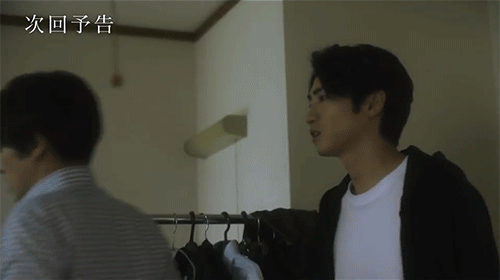
And it must be said, that while do not in any way shape or form doubt that Ohm and Nanon could have absolutely demolished a continuous shot for their Ep 5 kiss, I think we rely too heavily on their microexpressions for it to have worked. But here, it is such a brilliant choice, because everything that ends up unfolding is spontaneous, unexpected in some regard. The episode 4 kiss being a continuous shot serves to express and highlight the motion of the scene, the energy of the scene, which is what we need for the eruption that will occur, where we rely more on seeing the difference in the words and the emotions that are coming out of Pat in Ep 5 of BBS. I think that Nozue’s feelings, his realization, his anxiety comes on suddenly, so suddenly that the camera does not have time to cut away. Nozue is panicking, and he is trying to stay emotionally detached in a way that Pat and Pran are not, in a way that Pat and Pran are incapable of. Because Pat has been oblivious and Pran has been repressed, while Togawa has been repressed and Nozue has been oblivious, and Nozue, unlike Pat, is a character that is prone to decision paralysis. His habit of maintaining the status quo because making different choices means something bad might happen, means that he is much more likely to keep things the way they were. To ignore his feelings, or to run from them, unlike Pat who is physically incapable of holding those feelings in his body.
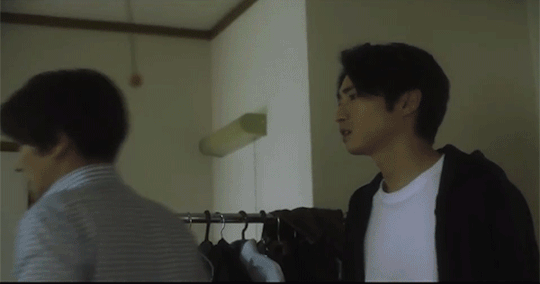
There is desperation between Togawa and Nozue, just as there is desperation between Pat and Pran, but the desperation for Pat and Pran comes from Pat needing Pran to understand his feelings, while the desperation for Togawa stems from trying to stop Nozue from running from his feelings, while Nozue’s desperation is to flee. I love love love that Nozue’s approach here. Where Pat was listing off all these impossibilities for their relationship, that were tragic yet true, and delivered with hope, Nozue is trying to shut down. He is being as polite as he can muster, but he is absolutely not concerned with seeming like he is lying. Again, where Pat is rambling off a list of things that were true but had not been said aloud in years, Nozue is rambling off a list of things that were not true and are only said because Nozue’s brain is disconnected from his body. The first thoughts that pop in to his head are the first things that come out of his mouth, any and every poor and pathetic excuse, and Togawa’s desperate attempts to counter every argument, to try to keep Nozue here. There is a tension underlying the scene that we get through the background music, that is far more discordant than the romantic, hopeful swells we got in Bad Buddy.
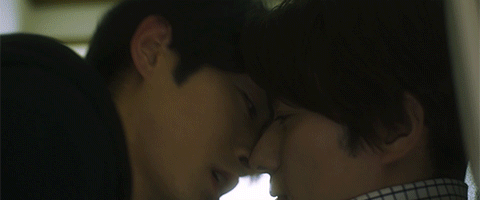
Togawa grabs Nozue, and kisses him, and the music cuts out so that it is just silence. Nozue’s mind goes blank, and where we get the intensity of Pat and Pran’s kiss escalating from both sides as their kiss goes on, what we get from Nozue is a physical reaction that his brain has not caught up with. Because at every turn, Nozue kisses Togawa back. But his eyes are wandering, he’s very much uncertain about what is happening. Not in a “do I like this? How does this feel?” kind of way, in my opinion, but in a “how did I get here? What is happening?” kind of way. And then he drops, and Togawa follows, and we get the “I’m seducing you” confession. And for a while Nozue is just frozen there on the ground, but the longer Togawa speaks, the more Nozue’s brain and body finally connect, and the more he seems to relax. He tries to engage Togawa in conversation, they have switched roles as Nozue tries to stop Togawa’s ramble.
And Togawa won’t let him. Pran walks away because he cannot allow himself to hope that Pat is actually serious about liking him, Togawa puts his hand to Nozue’s lips to make sure that he Nozue cannot reject him. Togawa’s internalized homophobia will not allow him to dream of a world where Nozue returns his feelings. So he hurts himself by rejecting Nozue before Nozue can reject him. Togawa asks to be hit, just sits there bowing and waiting to be beaten for being queer, for liking his boss, and you can see the way it hurt Nozue to see that Togawa assumes that Nozue would resort to violence like that. Nozue gets this look of disgust on his face, this look of pain when Togawa tells him he can hit him.
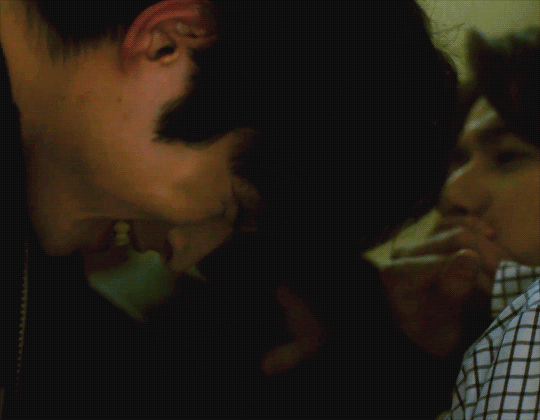
And where I knew where the PatPran kiss was heading, while it was no surprise that Pran walked away at the end of that, I cannot say I know what Nozue would have done if Togawa hadn’t jumped the gun. I don’t think Nozue knows what he would have done if Togawa had let the moment linger. If Togawa had let Nozue speak.
Anyway all of this to say that I love both of these scenes so much, and it is a testament to the acting prowess of all performers involved that so much can be conveyed. That Ohm and Nanon had to film all the rooftop scenes for the entire show in one evening, had to change the nature of Pat and Pran’s relationship as the Qs progressed. That Takeda and Kimura could carry four minutes of an intensely emotional scene where the power and the comfortability must flow between Togawa and Nozue, where Takeda has to stay physically in the scene while ensuring that his character looks and acts like he is in two different places. Pat’s hope, Pran’s despair, Nozue’s understand, and Togawa’s fear are all so visceral, it is no wonder these scenes have made and maintain such an impact.
#old fashion cupcake#bad buddy#bad buddy series#bbs#ofc#togawa x nozue#nozue x togawa#patpran#pran parakul#pat x pran#pran x pat#ohm pawat#nanon korapat#takeda kouhei#kimura tatsunari#jbl#tbl#thai bl#japanese bl#ofc ep 4#bbs ep 5#old fashion cupcake ep 4#bad buddy ep 5#bad buddy meta#old fashion cupcake meta#ofc analysis#bbs analysis
118 notes
·
View notes